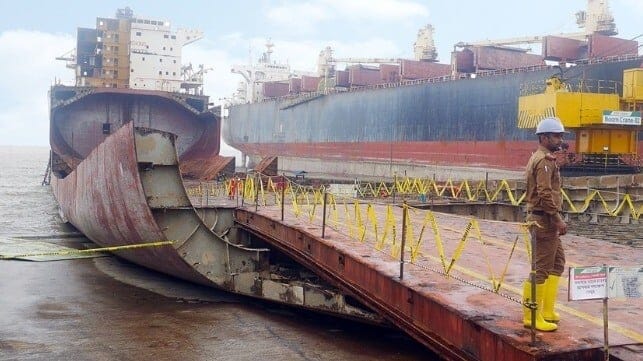Shipping Industry Faces Dilemma Over Vessel Recycling

The shipping industry is grappling with a critical challenge: how to dismantle end-of-life vessels safely while protecting workers and the environment. This issue is further complicated by the need to prevent hazardous materials from being exported to regions ill-equipped to handle them. Two key international treaties—the Basel Convention and the Hong Kong International Convention—play pivotal roles in this debate, yet their relationship is often misunderstood. Rather than being at odds, these treaties are complementary, addressing different aspects of ship recycling.
Understanding the Basel and HKC Frameworks
The Basel Convention, established in 1989 and reinforced by its Ban Amendment in 1995 and 2019, aims to prevent the dumping of hazardous waste in developing countries. This includes end-of-life ships that may contain dangerous materials such as asbestos and heavy metals. The Ban Amendment prohibits the export of hazardous waste from OECD countries to non-OECD nations, creating strict legal boundaries for ship recycling. Consequently, an OECD-flagged vessel cannot be dismantled in South Asia if any involved state is bound by this amendment. This regulation effectively outlines the geographical limits for ship recycling but does not dictate the standards for the dismantling process itself.
On the other hand, the Hong Kong International Convention (HKC), adopted in 2009, focuses on the operational aspects of ship recycling. It mandates that every ship must have an Inventory of Hazardous Materials (IHM) and requires recycling facilities to develop comprehensive Ship Recycling Facility Plans (SRFP). The HKC defines “Ship Recycling” as the dismantling of a vessel at an authorized facility, emphasizing the need for safe and environmentally sound practices. While the HKC does not specify where recycling must occur, it sets forth the necessary procedures and standards for dismantling once a vessel arrives at a facility.
Critics often argue that the Basel and HKC frameworks are incompatible, but this perspective overlooks their complementary nature. The real challenge lies not in legal contradictions but in the economic and geographical realities of the shipping industry. For over 45 years, South Asia has been the leading hub for ship recycling, accounting for more than 80% of global capacity. However, the Basel Ban complicates this scenario by restricting access to these facilities for OECD-flagged vessels, creating a significant tension between regulatory requirements and industry practices.
Path Forward: Harmonizing Regulations and Practices
Despite the challenges posed by the Basel Ban, the HKC remains crucial for several areas, including non-OECD-to-non-OECD ship recycling and domestic dismantling. The Ban does not have to permanently exclude non-OECD states from ship recycling. Instead, it can serve as a catalyst for improvement. By upgrading facilities to meet OECD-equivalent standards and implementing robust worker protections, South Asian shipyards can argue for “functional equivalency,” thereby enhancing their competitiveness.
Moreover, the European Union’s Ship Recycling Regulation serves as a practical example of how these frameworks can coexist. This regulation incorporates the Basel Ban while ensuring that EU-flagged vessels are recycled only in certified yards. This dual compliance approach illustrates that Basel and HKC can operate together, with one setting trade boundaries and the other ensuring safety and environmental standards.
The key to resolving the current dilemma lies in recognizing that the issue is not a legal conflict but an economic one. The Basel Ban limits the flow of vessels to South Asia, impacting the region’s recycling capabilities. To move forward, stakeholders must embrace reform rather than resistance. By investing in infrastructure that meets international standards and aligning domestic regulations with best practices, non-OECD states can maintain their vital role in global ship recycling.
In conclusion, the future of ship recycling hinges on collaboration rather than fragmentation. The Basel Convention and the HKC, when viewed as complementary frameworks, can work together to ensure that ship recycling is conducted safely, sustainably, and equitably. The global shipping community must recognize the importance of harmonizing these regulations to achieve a truly sustainable future.
